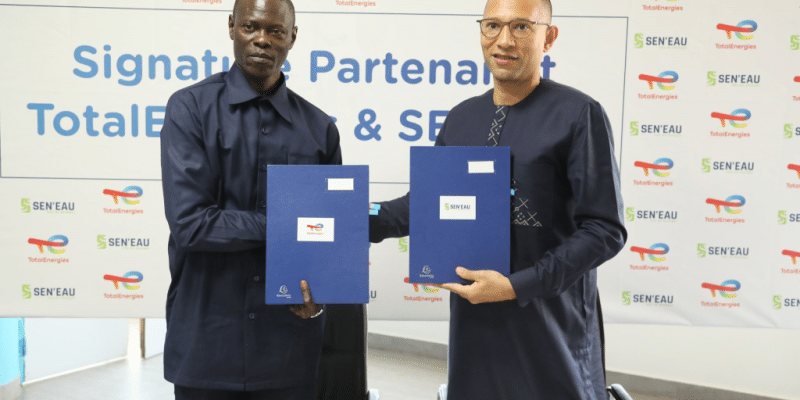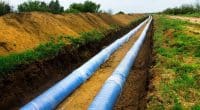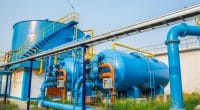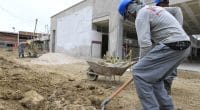Under a partnership recently signed between Sen'Eau and TotalEnergies, two solar photovoltaic power plants with a combined capacity of 20 MWp will be built to supply drinking water infrastructure in Mékhé and Keur Momar Sarr.
The new partnership between Sen’Eau and TotalEnergies Renewables Distributed Generation Middle East Africa (DG MEA), a subsidiary of French energy giant TotalEnergies, involves the construction of solar power plants on two sites in Senegal. The larger plant will be located at Keur Momar Sarr in north-western Senegal. With an estimated annual capacity of 25 GWh per year, the plant is expected to supply up to 32% of the electricity needed to run a drinking water production facility.
The municipality of Keur Momar Sarr will have a third drinking water plant in 2021, making it the largest production site in Senegal, with a capacity of 200,000 m3 per day. The water treated at this plant is pumped from Lac de Guiers in the upper delta of the Senegal River. In the Thiès region, the second solar power station (20 GWh per year) will be built to cover 32% of the electricity needs of the Mékhé booster station.
Read also- SENEGAL: before his departure, Macky Sall signs a PPP for desalination in Dakar
This flow accelerator will enable the transit of larger volumes of water (200,000 m3 per day) to the major consumption areas of Dakar, Thiès, the Petite-Côte and the new urban centres, from the third drinking water plant at Keur Momar Sarr. The two solar photovoltaic farms will have a combined capacity of 20 MWp.
According to Sen’Eau, the public utility responsible for the operation and distribution of drinking water in urban and peri-urban areas in Senegal, the construction of the two solar power plants, which will be launched simultaneously in 2024, will “increase the energy efficiency of these two sites and enable savings to be made on operating costs. These projects will also help to protect the environment by reducing CO2 emissions into the atmosphere”.
Jean Marie Takouleu






